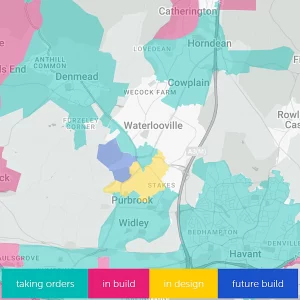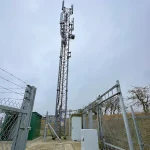Sponsored Links
OECD Warns of Internet Address (IPv4) Shortage
Posted: 16th May, 2008 By: MarkJ
The Organisation for Economic Co-operation and Development (OECD) has warned of the urgent need to meet the growing demand for Internet addresses (IP's). It's claimed that 85% of all available IPv4 (e.g. 123.123.123.123) Internet addresses are already in use, with predictions suggesting that they could run out entirely by 2011 (related news articles).
This could mean that new Internet users or mobile devices will not be able to access the Internet. The answer, says the report, is Internet Protocol version 6 (IPv6) which will provide an unlimited number of addresses and help drive the rollout of broadband, Internet-connected mobile phones and sensor networks, and new Internet services.
The OECD is calling on Governments and business to help raise awareness of the need to start preparing now for the move from todays Internet Protocol version 4 to IPv6 and explain to Internet Service Providers (ISPs) and IT professionals that the move is a commercial and social opportunity, not a financial burden.
ISPs have to date been reluctant to invest because customer demand for IPv6 is low. Governments could play a role as a large user of Internet services by stimulating demand for IPv6 through their own procurement policies and public-private partnerships in IPv6 research and development.
The report also considers the alternative to a widespread adoption of IPv6 whereby some regions adopt it and others merely adapt IPv4 as a short-term solution. This, it warns, would impact the economic opportunities offered by the Internet with severe consequences in terms of stifled creativity and deployment of new services.
It's reported that the United States government has set June 2008 as the deadline by which the Internet network of every government agency must be compatible with IPv6. The European Commission is also funding research projects and looking at ways to speed up deployment. China, Korea and Japan are also taking the lead with similar initiatives.
This could mean that new Internet users or mobile devices will not be able to access the Internet. The answer, says the report, is Internet Protocol version 6 (IPv6) which will provide an unlimited number of addresses and help drive the rollout of broadband, Internet-connected mobile phones and sensor networks, and new Internet services.
The OECD is calling on Governments and business to help raise awareness of the need to start preparing now for the move from todays Internet Protocol version 4 to IPv6 and explain to Internet Service Providers (ISPs) and IT professionals that the move is a commercial and social opportunity, not a financial burden.
ISPs have to date been reluctant to invest because customer demand for IPv6 is low. Governments could play a role as a large user of Internet services by stimulating demand for IPv6 through their own procurement policies and public-private partnerships in IPv6 research and development.
The report also considers the alternative to a widespread adoption of IPv6 whereby some regions adopt it and others merely adapt IPv4 as a short-term solution. This, it warns, would impact the economic opportunities offered by the Internet with severe consequences in terms of stifled creativity and deployment of new services.
It's reported that the United States government has set June 2008 as the deadline by which the Internet network of every government agency must be compatible with IPv6. The European Commission is also funding research projects and looking at ways to speed up deployment. China, Korea and Japan are also taking the lead with similar initiatives.
Search ISP News
Search ISP Listings
Search ISP Reviews
Latest UK ISP News








Cheap BIG ISPs for 100Mbps+
150,000+ Customers | View More ISPs
Cheapest ISPs for 100Mbps+
Modest Availability | View More ISPs
Latest UK ISP News
Helpful ISP Guides and Tips
Sponsored Links
The Top 15 Category Tags
- FTTP (6798)
- BT (3881)
- Politics (3074)
- Business (2766)
- Openreach (2663)
- Building Digital UK (2512)
- Mobile Broadband (2475)
- FTTC (2142)
- Statistics (2127)
- 4G (2092)
- Virgin Media (2024)
- Ofcom Regulation (1779)
- 5G (1732)
- Fibre Optic (1604)
- Wireless Internet (1595)
Sponsored
Copyright © 1999 to Present - ISPreview.co.uk - All Rights Reserved - Terms , Privacy and Cookie Policy , Links , Website Rules































